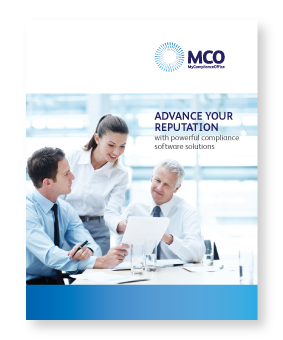Historical Context of FCPA
You can download a full copy of the slides from this webinar.
Full video transcript available below:
Hello and welcome to today's webinar hosted by me, Joe Boyhan of MCO, and Paul Murdock of MCG Compliance Services. Today, we're going to be looking at the Foreign Corrupt Practices Act or the FCPA. Paul Murdock has over 25 years of experience in financial services. Prior to forming MCG, he led the securities consulting, a professional services practice for Wolters Kluwer Financial Services. Previous to that, he held the Capital Americas, an investment management practice for Ernst & Young in New York.
I now want to pass you on to Paul, who's going to start today's webinar.
|
Thank you Joe, and welcome everybody. I certainly appreciate you taking time out of your busy schedule to spend a few minutes with us as we go through the Foreign Corrupt Practices Act, or FCPA, as we like to refer to it as. So, let's talk about how we got here today and just give some historical context as to why this law was enacted. So, back in the late '70's, in '77, in response to revelations about anti-bribery, or you know, widespread bribery of foreign officials by U.S. companies in order to win business, Congress decided to act. It was also in the backdrop of the Watergate scandals, so to put it in perspective, you had a lot of things going on. |
|
As you can see in this slide, over 400 U.S. companies revealed that in some form or facet, that in fact, they probably had some dealings with foreign governments that, at the time, probably would not really rise to the level of bribery, but clearly we knew there was some issues going on there. |
|
This webinar was co-hosted with MCG Consulting |


